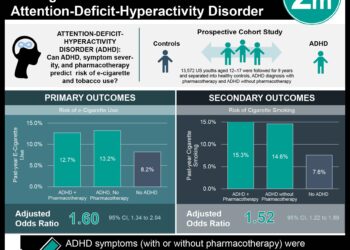Longer duration of breastfeeding improves childhood cognition
Image: PD
1. Longer breastfeeding duration was associated with improved receptive language and IQ in children.
2. Exclusive breastfeeding was associated with superior performance on cognition tests when compared to any breastfeeding and no breastfeeding.
Evidence Rating Level: 2 (Good)
Study Rundown: This prospective cohort study found that longer breastfeeding duration was associated with higher scores on cognition tests. Past studies have found positive associations between breastfeeding and child intelligence but have been primarily cross-sectional in design, not accounted for confounding factors and failed to include assessment of degree of breastfeeding (exclusive or supplemented with bottle-feeding).
Strengths of this study include prospective design, longitudinal follow-up and evaluation of numerous potential confounders. Generalizability may be limited due to the relatively high socioeconomic status and rates of exclusive breastfeeding in the study population. Future studies might further evaluate this association in a more diverse population and determine whether these gains in cognition are maintained through adulthood.
Click to read the study in JAMA Pediatrics
Click to read an accompanying editorial in JAMA Pediatrics
Relevant Reading: How good is the evidence linking breastfeeding and intelligence?
Study Author, Dr. Mandy Belfort, MD, MPH, talks to 2 Minute Medicine: Division of Newborn Medicine, Boston Children’s Hospital, Harvard Medical School.
“This research supports the importance of breastfeeding for infant development. Physicians — particularly obstetricians, pediatricians, and family practitioners — play key roles in managing breastfeeding related medical issues, and in providing information and support to their patients. Our findings suggest that policies to support more prolonged breastfeeding would improve our children’s development. The findings will also be helpful for individual women trying to decide whether to breastfeed, or for how long to continue.”
In-Depth [prospective cohort study]: This study analyzed data from 1312 mothers and children who were participants in Project Viva, a prospective cohort study of prenatal factors, pregnancy and child health, to determine whether patterns of breastfeeding and maternal fish intake during lactation are associated with improved child cognition. Outcomes evaluated include performance on the Peabody Picture Vocabulary Test-Third Edition (PPVT-III) and Wide Range Assessment of Visual Motor Abilities (WRAVMA) at age 3, and on the WRAVMA, Kaufman Brief Intelligence Test-Second Edition (KBIT-II) and Wide Range Assessment of Memory and Learning (WRAML) at age 7.
Duration of breastfeeding was associated with enhanced receptive language and IQ in children, evidenced by a 0.21 point (CI 0.03-0.38) increase on PPVT-III score, a 0.35 point (CI 0.16-0.53) increase on KBIT-II Verbal score and 0.29 point (CI 0.05-0.54) increase on KBIT-II Non-Verbal Score per month of any breastfeeding. Performance was further improved in children who were exclusively breastfed to 6 months of age, with 0.50 (CI 0.11-0.89), 0.80 (CI 0.38-1.22) and 0.58 (CI 0.01-1.14) point increases per month breastfed on the PPVT-III, KBIT-II Verbal, and KBIT-II Non Verbal respectively.
By Denise Pong, MPH and Leah Hawkins, MD, MPH
More from this author: Lower vulvar cancer-related mortality in African Americans, Active phase of labor longer in twin deliveries, Perioperative protocol shortens stay after major gynecologic surgery, Severe endometriosis associated with poor IVF outcomes, New guidelines for intrapartum management of patients with mental disorders
© 2013 2minutemedicine.com. All rights reserved. No works may be reproduced without expressed written consent from 2minutemedicine.com. Disclaimer: We present factual information directly from peer reviewed medical journals. No post should be construed as medical advice and is not intended as such by the authors, editors, staff or by 2minutemedicine.com. PLEASE SEE A HEALTHCARE PROVIDER IN YOUR AREA IF YOU SEEK MEDICAL ADVICE OF ANY SORT.






